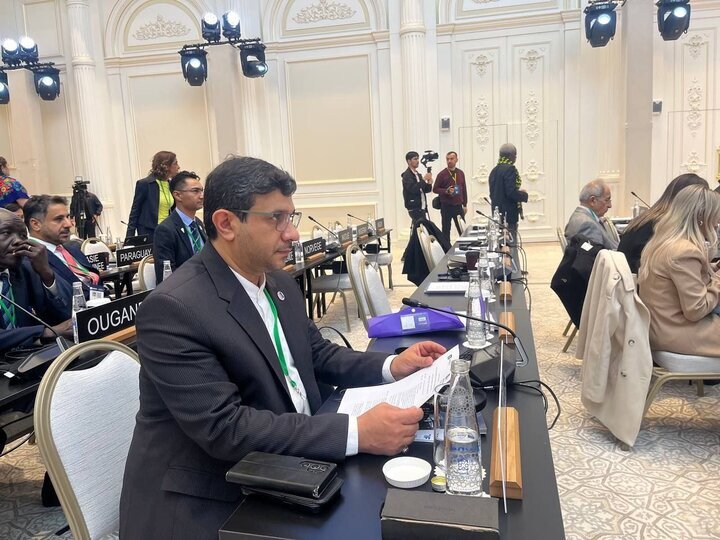Iran attends at interregional meeting of secretaries-general of UNESCO national commissions

TEHRAN-- The 12th Interregional Meeting of National Commissions for UNESCO was held in Samarkand, Uzbekistan, attended by the secretaries-general and representatives of national commissions from all over the world.
According to Mehr News Agency, Hassan Fartousi, Secretary-General of Iran’s National Commission for UNESCO, attended the meeting as the official representative of the Islamic Republic of Iran and participated in four specialized meetings and multilateral discussions related to the future of cooperation between UNESCO and the member states.
At the beginning of the meeting, UNESCO Assistant Director-General for External Relations Xing Qu, welcomed the secretaries-general and emphasized the importance of the role of national commissions in advancing the organization's missions in the fields of education, science, culture and communication.
Also, UNESCO Assistant Director-General for Culture Ernesto Ottone Ramirez, UNESCO Assistant Director-General for Natural Sciences Lidia Arthur Brito, and UNESCO Assistant Director-General for Communication and Information Tawfik Jelassi, presented their views on global challenges and opportunities in the fields of culture, science, communication and sustainable development, and emphasized the need for continuous interaction between the national commissions and the UNESCO Secretariat.
The meeting was held in form of four specialized sessions, each dedicated to examining a strategic issue: empowering the youth for peace development, human rights, social learning and education for sustainable development; link between cultural figures and communities in the digital age; the role of national commissions as strategic allies of UNESCO; and sharing experiences and best practices in the field of creating inclusive societies and advancing sustainable development. The secretaries-general of UNESCO national commissions delivered speeches and expressed their views during the allocated time.
During the meeting, Fartousi highlighted the role of national commissions as strategic allies of UNESCO, emphasizing the need to strengthen regional and interregional cooperation between national commissions and highlighting the role of these institutions in achieving the Sustainable Development Goals and expanding cultural dialogue.
He also announced Iran’s support for the resolution proposed by Kazakhstan regarding the role of national commissions.
Despite these challenges, the National Commission for UNESCO in Iran has continued its path of promoting a culture of peace with determination and perseverance and remains committed to implementing UNESCO’s goals, values, and ideals.
Over the past year, the National Commission for UNESCO in Iran has strived to expand the network of UNESCO Chairs in the country’s universities and strengthen its cooperation with Category II Centres.
Also, the networks of the creative cities and the learning cities in Iran have been developed and become more coherent, as these networks play a key role in promoting knowledge-based, resilient and inclusive societies.
In addition to these measures, the structure and function of the specialized national committees, consisting of the most prominent experts in various fields of UNESCO's mission, have also been strengthened to further strengthen the scientific and intellectual foundations of the commission's programs and play a more effective role in achieving UNESCO's goals at the national and international levels.
In addition, with the valuable cooperation of the respected colleagues at UNESCO Headquarters (Paris), serious steps have been taken to rebuild and organize the network of UNESCO clubs and associations in Iran, including inviting qualified NGOs to join this network and amending the licensing regulations and monitoring system to ensure that the activities of these clubs continue in a professional and effective manner.
At the regional level, the National Commission for UNESCO in Iran has deepened its cooperation with other national commissions, especially at the regional level.
Among the joint actions, one can mention the preparation of joint dossiers for inscription on UNESCO lists and programs, which helps to strengthen intercultural dialogue and safeguard the common heritage.
Fartousi said: “As we discuss at this interregional meeting, let us reaffirm our collective belief that national commissions are the cornerstone of UNESCO’s presence and effectiveness at the national level. It is through our cooperation that we can translate UNESCO’s lofty ideals into concrete actions, thereby strengthening its impact on the lives of people around the world. We are fully confident that we will have the strong and sincere support of the new Director-General Khaled El-Enany.”
KD
Leave a Comment